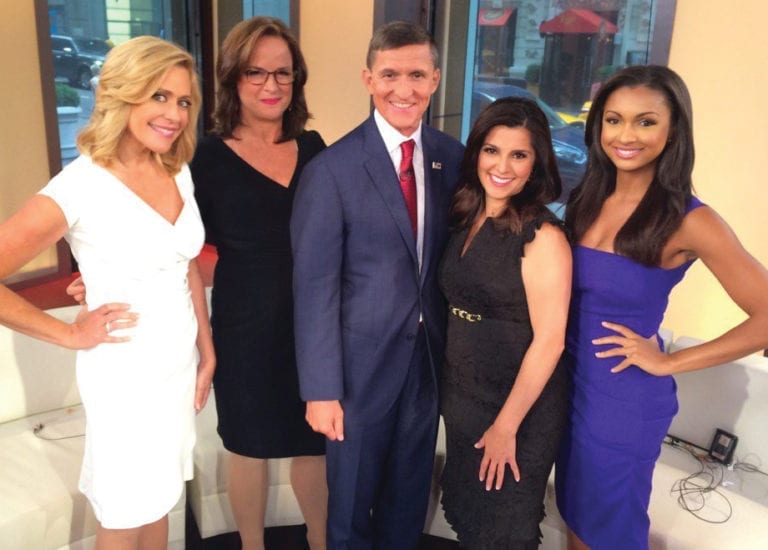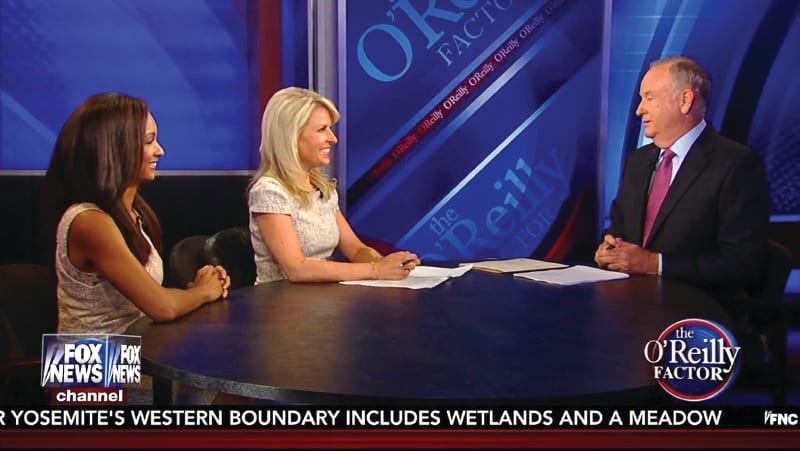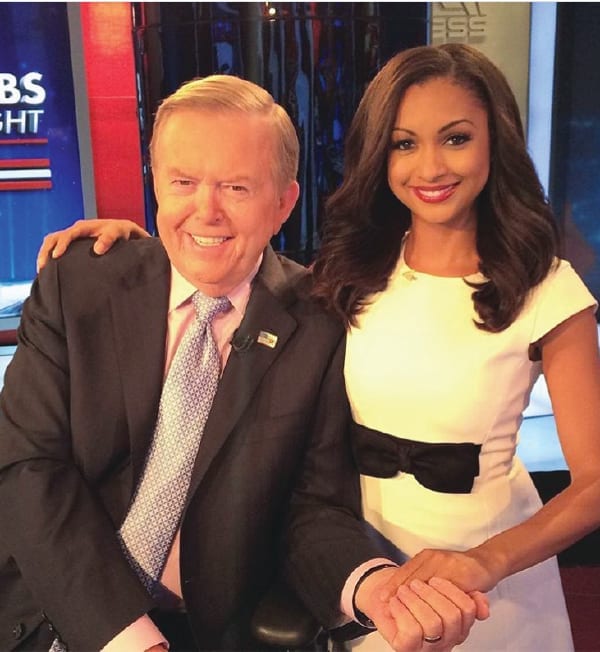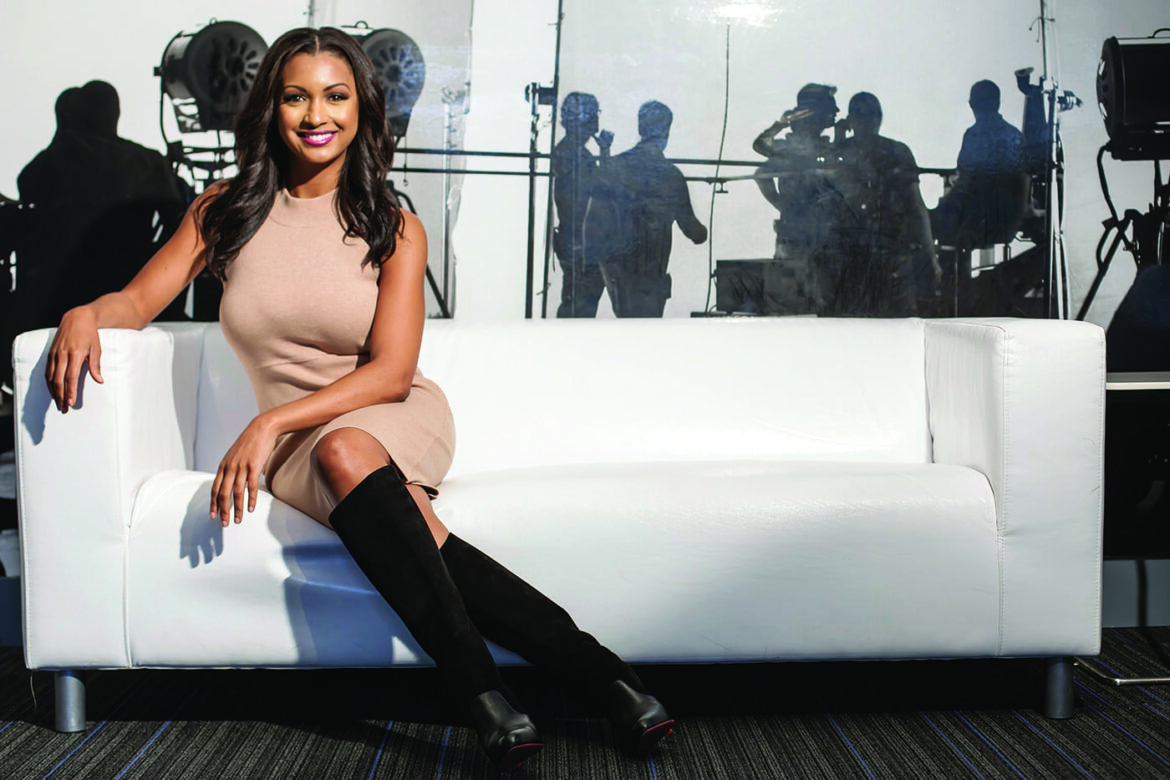https://youtu.be/Cg9h6r27Ndk
Eboni K. Williams; lawyer, political pundit and a Real Housewife of New York believes God’s direction is critical in her life’s journey
Eboni, how, at 16 years old, did you graduate from high school?
My mother was a single parent, and I am her only child. And while she didn’t get the opportunity to complete her formal education, it was always really important to her that I have that opportunity. So, from really kindergarten on up, she was very focused, very disciplined around the academics. We had Yale and Juilliard catalogs coming to the house when I was 7 years old. She always had a real clear vision that college was expected and was going be a part of my journey. Everything was focused around that education. Finally, in 10th grade, I was out of courses to take for the rest of my high school career. We sat down with a counselor and collectively decided the best thing was to complete everything in three years. So, I could graduate and have a full curriculum at 16 and go straight into my college career at UNC-Chapel Hill at 16. It was great.
Tell me about your experience at UNC-Chapel Hill.
Carolina was beautiful. My mom, being a single parent, didn’t have money saved up for my college education. She had to work to support me all by herself. So, Carolina was gracious, and I was afforded an academic scholarship, a full ride. Going to a school that large, at 16, was a bit intimidating, of course. But, you know, I also felt like I had a family there. Here we are, over 15 years later, and I still feel very connected to my UNC family. I’ve lived across the country. I’ve lived in Los Angeles for five years and in New York for a few years now. But everywhere you go, you meet a Tar Heel. So, the UNC experience was really life-changing because I could be a part of a community, and I still am.
You are perceived as being well-grounded. From where does that characteristic come?
Well, it’s from my mother — and not just her as an individual. She is a great storyteller of our family history. Talking about my grandfather having a fourth-grade education, but having a barber shop, building homes, doing all the things he needed to do to support his family of four. My grandmother, being a homemaker, but also a domestic working for families in the rural South through housekeeping and cooking. Understanding deeply the lineage which I come from, and thus the opportunity I have been afforded. These are things, Karen, that my family could have never dreamed of. I am a first-generation college graduate, the first in my family to dream of going to law school, and things of this nature. So, I’m quite humbled by my life, and I think, hopefully, that is where that being “grounded” comes from. I never forget where I come from. I never really forget where I’m trying to go.

Melissa Francis, Elizabeth McDonald, Gen. Michael Flynn, Rachael Campos Duffy and Eboni Williams.
Why Loyola for law school?
So, again, they offered the best scholarship opportunity for me. They were also back in New Orleans. I was born right outside of New Orleans, and so my family lineage has the Southeastern Louisiana pedigree. It was a cool opportunity for me to reconnect with that aspect of my history on a personal level, and my faith is very important to me. I am not very much of a Scripture quoter, but my belief in God is critical to my journey, and I don’t think anything happens by mistake. I think God puts us in a very specific place for very specific reasons. It just so happens that I was a second-year law student at Loyola during the tragedy that became Hurricane Katrina. That experience changed my world all over again because I saw devastation up-close and personal. It also was my introduction to politics. I became very active in Louisiana politics. I worked for City Councilwoman Stacy Head, Louisiana Attorney General’s Office, Louisiana Secretary of State. I cut my teeth, as a young politico, around the rebuilding of a city, and I wouldn’t trade that experience for anything. Loyola prepared me for that. Lastly, Loyola was very well-known for its Moot Court Program. I kind of dubbed myself the Queen of Moot Court and was on the national team. My first New York experience was when we’d won the regional competition and went to New York to compete nationally and argued before real live appellate judges and Supreme Court justices from Southern states. It was incredible and reaffirmed I wanted to be a lawyer. Lots of brilliant legal minds spend their careers mostly drafting papers and filing important briefs and doing important work. Paper lawyers are what they call them. I am definitely a talking lawyer. I have a spirit for advocacy, and that was great training for arguing with Bill O’Reilly every week.
How did you go from being a lawyer to Fox News contributor?
I had an undergraduate communications degree, and I focused on public speaking because, again, I always knew, from 5 years old, I wanted to be a lawyer. I knew that certain skills would aid me in that. So being an effective communicator, effective on my feet and a good public speaker was important. But I never had a dream of doing the news. The plan was never to have an on-air career as an analyst or a co-host or anything like that. I loved the law. I still love the law. I use my law degree every day. Whether it’s a legal segment on Fox News, whether it’s radio, whether it’s figuring out my analysis of a political scenario. That’s very critical. I also had a background in performance, theater and mass media. I missed it. So, I decided in 2010 to move to Los Angeles. One year turned into five in Los Angeles, and I ended up landing in talk radio, which, again, I never had any interest.

Eboni Williams with Monica Crowley and Bill O’Reilly.
Was it conservative talk radio?
I will be completely candid and tell you, when I started doing radio I didn’t even know those distinctions. I was so naive about the genre. I just found myself doing acting and print modeling. Someone approached me and said, “You’re a lawyer, right?” I said I am. I was referred to KFI AM 640’s Mo Kelly, who was looking for a lawyer to come on and break down the Casey Anthony headline case. I had been following all big cases and was happy to do it. Just off-the-cuff, you know, just a favor really. I tell you, I fell in love with that microphone and the ability to break down complicated legal nuance in a way that mainstream viewers could understand. It was a conservative-leaning radio station, but I didn’t know that. So, I got a very quick education. After doing that for a while, the program director, who was this fantastic woman, Robin Bertolucci, approached me and changed my career trajectory. She said, “Eboni, you know, I’ve been hearing you on Mo’s show. You sound great. Would you be interested in doing a three-hour hosting stint?” I had not thought about that. That was never the plan. I was happy with my little segment. But I knew enough to know, and my faith tells me you never turn down an opportunity because you don’t know where God is trying to take you. So, I said absolutely. I started hosting, three hours a day, politics, law, and pop culture. That just fueled itself for a couple of years and is where O’Reilly’s producers found me. They heard my talk radio show as I was giving analysis and commentary on what then was the Trayvon Martin/George Zimmerman trial. The rest is Fox News history.
You have God-given beauty. When you shifted from radio to television, did you feel that there was a certain stress associated with having to look a certain way every single day or did that pre-exist?
It pre-existed. Viewers and audiences can trust you more because you’re able to demonstrate consistency if you do multimedia. While I love all forms of media — print, broadcast, digital — I find radio the most difficult. I’ll tell you why. Because you can’t fake anything on radio. The human voice and the ability to connect with inflection, intonation, cadence, it’s a very delicate thing. If you succeed in radio, you will find it much easier to do television. Now, when people that start in television try to go into radio, it is much more challenging because television is normally six to seven-minute segments. It is quick sound bites. You don’t get to do sound bites in radio. You’ve got to explain yourself, and you must have a full accountability around the ideas and beliefs that you put out there. But to your point about looks, that is very important. I talk a lot about this in my upcoming book, “Pretty Powerful,” that will be out this spring. I come from a pageant background. I was the toddler with the tiara. Pageants are very much a rich girls’ sport. We did not have money growing up. But my mother was a believer, and we had sponsorships. I started doing pageants at 6 years old. One thing you learn when you’re doing pageants is the value of presentation. It is not about being the prettiest girl in the room. What is that? There are millions of beautiful women in this world. I think it’s about understanding every single woman in this world has the ability to make decisions about how to present herself in the way that she feels is best, in the way that she thinks best highlights her attributes. I really think there’s value there and not something to squirm about. Society tends to shy away from that type of position, tends to make women feel bad, quite frankly, about being concerned with what we look like. I think it’s a bit of hypocrisy because we know the beauty business, billion-dollar business matters. It matters how you present. It matters how you wake up and show up in the world. It is something that I’ve always found true, probably because of my pageant background. I had a grandmother that raised me to know, “You never know who you’re going to run into, so always put your best face forward.” This has always been important to me, even way before TV. I think that’s why I was always interested in commercial work, print modeling work, because what we are talking about is business. It is the reason commercials have people that look a certain way. It’s because it’s more desirable when you’re trying to sell something. So, if you are looking a certain way to sell a product, then shouldn’t you want to look a certain way to sell the message? Isn’t the point to capture people’s attention? Once you have that, then you are able to really effect change. A lot of people don’t put those together. I do. I have, for a long time. Going from radio to television really just felt like upping the ante in a way. I didn’t feel stressed about it. I felt excited about it because now I would be able to use this skill-set that I had honed and was still developing in radio — really effective communication from an intellectual and kind of traditional standpoint — coupled with how I presented myself visually. I felt like I really had two great tools to combine together in a way that I hoped would be very powerful. So far, it’s worked out pretty decent.
What’s your brand?
Authentic, humble, powerful and ladylike. I very much relish being a confident and educated and critically thinking, intellectually curious woman, and I embrace that part of me.
Do you feel there’s a tremendous responsibility with that brand?
A hundred percent. I am very cognizant of the fact that there are not a ton of people who look like me in cable news and news in general. I take that responsibility seriously, and I am very proud of it because God could have chosen anyone and he does choose many. But I am grateful that I get to go on-air every day and be myself, share my beliefs, my hopes and dreams, and the values I was raised with. America is something I am proud of, and I take it very seriously, and I’m not perfect. You know, I sometimes misspeak or have moments I could have said or done something a little bit different or better. But ultimately what I pride myself on, and this is something I will always give to every opportunity that I have in media, is the truth. You know, the truth will set you free, and I think that viewers and audiences deserve the truth.
How does your faith play a role in your life?

Eboni with Lou Dobbs.
Because my mother working two, three, four jobs at a time sometime to support us, we weren’t going to church every Sunday. We would go on the big holidays. I was raised Baptist, had been baptized as a child and thought of myself as a Baptist as a young child. I will tell you that there was a very personal thing that happened in my family, my immediate nuclear family, when I was about 21, 22 years old that really changed faith for me. Faith is nothing if not tested, and my faith was tested. Before that, I thought of myself as a Christian, as a Baptist, and not much more else about it. But it was during this moment of having my faith tested that I developed my personal connection with God. I realized that prayer is critical and not just prayer to say what you need. Prayer can also be operating from a spirit of gratitude. Father God, if I get nothing else in this life, I want to thank you for all that you’ve done. It’s not just about what we get; it is about what we give to him. You asked earlier in the interview about what led to this transition, and I really should have mentioned it was spiritual too. I feel like God gave me particular gifts, particular strengths, the ability to communicate, the ability to enjoy presenting myself a certain way every day, the ability to think, I hope, from an objective space and not just give it lip-service, but try to always see all positions. I don’t think God just gave me this to sit on my thumbs or to act in a kind of average way. I really think that God has gifted me with these blessings and these talents and these skill-sets to really effect change.
What has been your favorite role to date?
I would still say going on with Bill O’Reilly every week is probably my favorite role to date.
Do you like him?
I like Bill. I have a lot of incredible respect for Bill O’Reilly.
Because?
Because Bill is very authentic. Probably one of the questions I get about working at Fox is about working with him and whether he is like what you see on television. I can answer unequivocally; he’s exactly that man. Sometimes that’s met with criticism. Sometimes that’s met with great delight. But what I can tell you is Bill means every single thing that he says. For that, I have incredible respect for him. Because when you do it for as long as he’s done it and you can still show up and be your authentic self in that way every day, it’s quite incredible. That is something I learned from him, and I take from him, and I hope to grow from that model, from that example. So, yes, sitting across from Bill each and every Wednesday and going back and forth about issues, whether it’s politics, black culture, gay culture, Hispanic culture, Millennials, women, he is very interested. Having those kinds of cultural dialogues with Bill O’Reilly each week is probably my favorite thing.
If you could ask God one question, what would it be?
What would you have me do more of.
What do you want to be remembered for?
I want to be remembered as a woman who shared herself with people, as a woman who inspired people, not to be like me, be better than me, but be unafraid of what you come from, be unafraid of where God might take you or whatever you believe in will take you. You know, I don’t believe in destinations, I only believe in journeys, and I can’t even begin to imagine where I hope this whole thing takes me.

